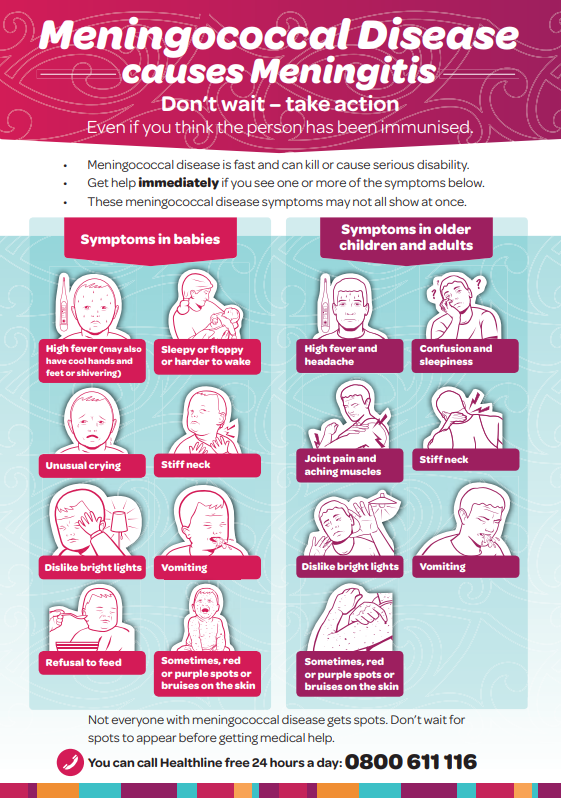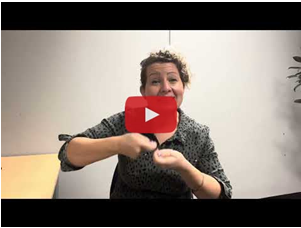 Meningococcal disease is a bacterial infection that causes two very serious illnesses: meningitis (an infection of the membranes that cover the brain) and septicaemia (blood poisoning).
Meningococcal disease is a bacterial infection that causes two very serious illnesses: meningitis (an infection of the membranes that cover the brain) and septicaemia (blood poisoning).
It can affect anyone – but it’s more common in children under the age of 5, teenagers and young adults. Students in their first year of tertiary education living in hostel accommodation may also be at higher risk.
Meningococcal disease is difficult to catch as the bacteria don't live for very long outside of the body. The bacteria passes from person to person through secretions from the nose or throat, for example by coughing or sneezing.
It is important to know the signs and symptoms of meningococcal disease as it can develop quickly. It can be treated with antibiotics, but early treatment is very important.
If you notice any of the symptoms of meningitis, contact your family doctor or call the Healthline on 0800 611 116 immediately.
Vaccination
The meningococcal B vaccine is on the National Immunisation Schedule for babies at 3 months, 5 months, and 12 months old. It will protect your pēpi (baby) against meningococcal B. All tamariki under 5 years old, who have not been immunised against men B, can catch up for free until 31 August 2025.
Rangatahi aged 13 to 25 years old living in close-living situations can get free meningococcal B vaccines until 28 February 2024. A single dose of Menactra is also free for people aged 13-25 years and in their first year of living in boarding school hostels, tertiary education halls of residence, military barracks, or prisons. The Menactra vaccine protects against four of the common strains of Meningococcal disease (A,C,W,Y) which account for about half of the cases in New Zealand.
Both vaccines are funded for individuals who have been exposed to a case of Meningococcal disease, or who are immunocompromised.
See more detail on the Te Whatu Ora website.
See the NZSL video on Meningococcal disease:

Information for health professionals
Information for the public
For more information on meningococcal disease visit: